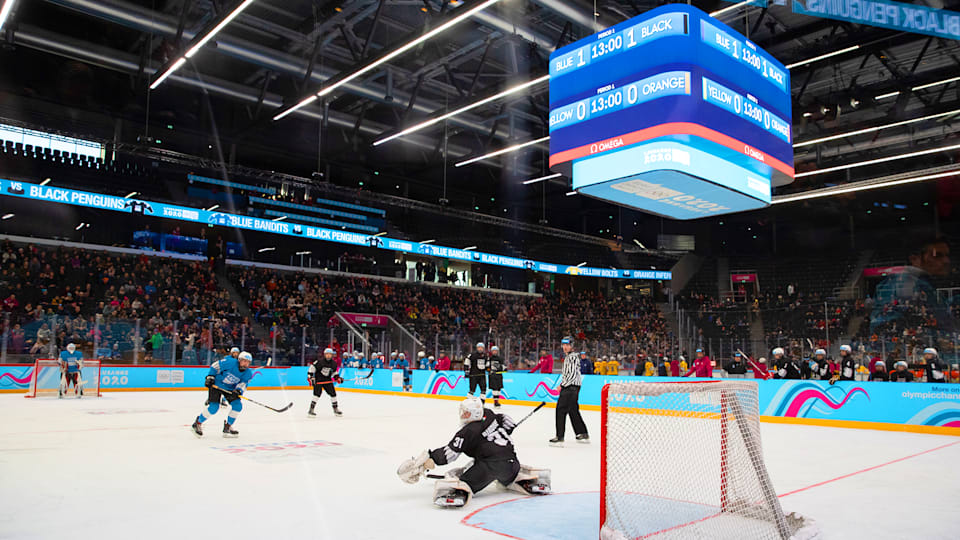
Thankfully though the international language of ice hockey is breaking down barriers at the Lausanne 2020 Winter Youth Olympic Games.
“It’s brilliant fun and we are all finding ways of getting along and understanding each other,” said Jakub Michalski (POL), who is part of a mixed-NOC 3-on-3 team containing players from as far afield as Singapore, Mexico and New Zealand. The squad of 13 enter and leave the ice in rapid succession during play, with only three in action at any one time.
“There’s a Slovakian here and he can’t speak English so I have been helping to translate what the coaches are saying,” Michalski added. “It’s great because we’ve become friends and it’s improving both my English and Slovakian.”
Michalski’s compatriot Anna Kot (POL) agrees. “Our coach is French and doesn’t speak English, and I don’t speak French, but there’s a British girl on the team who is translating the tactics for me,” she said. “It’s very unusual but it’s a good way of making new friends and learning new things about hockey.”
This language laboratory has extended through all the sides taking part in the competition. “At first I was mainly chatting to other Spanish-speaking athletes,” Daniel Valencia (MEX) said. “But once you are put together in a team you immediately start bonding.
“You get loyal to your group and you want to speak with everybody. There is a Belarusian guy on my team who can’t speak English but you find a way of getting the message across. I now have friends from the Czech Republic, Spain, Austria. It’s fantastic.”
The unorthodox set-up has even found approval from the national coaches who can enjoy a lightened workload as just one manager is assigned per team.
Tobiasz Bigos (POL) is Poland’s under-16s coach and would normally be guiding his youngsters collectively. Here though his three girls and three boys are split across six colour-coded units.
“They play against each other so at least I always get one winner,” he said. “I just talk to them individually after each match here but I like the way it has been organised. They can learn so much about being in a team with different people from this.”
Lining up against your closest friends adds an extra element of enjoyment. “Jakub Trzebunia and I are great friends,” Michalski said. “We live together, we play on the Poland under-16s team together but here we are trying to beat each other. We can’t stop joking about how we want to win. It is really funny.”
Meanwhile, in the crowd, the fans are having to use new criteria to choose which teams to cheer for. “I’m supporting the blues because my football club Grasshopper Club Zurich wear blue,” local student Hans Keller said.
“I’m supporting the oranges because I don’t like his football team,” said his friend Noah Frey. “But it doesn’t really matter. This is a good way to watch hockey. It’s fast and skilful. And it’s a nice idea, the nations playing together.”
